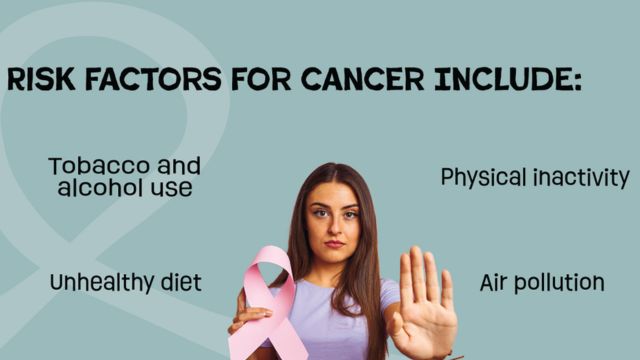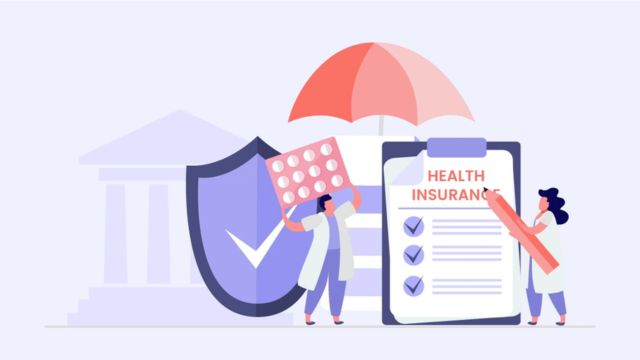With millions of confirmed cases annually, cancer continues to be one of the most major health issues confronting society. The good news is, though, early detection, prevention, and awareness can be quite important in enhancing results. An indispensable instrument for teaching the public about cancer hazards, preventative strategies, and the need of frequent tests are cancer awareness campaigns. By urging lifestyle modifications, supporting early detection, and offering vital tools for support and treatment, these initiatives seek to lower the cancer burden.
What Are Cancer Awareness Programs?
Programs aimed at raising knowledge of the several forms of cancer, risk factors, preventative measures, and the need of early detection among people and communities are known as cancer awareness campaigns Governments, healthcare groups, non-profit organizations, and international agencies often organize these initiatives in order to increase awareness and give tools to people at risk. Many free healthcare and affordable medical care programs are produced by the government.
Usually combining educational activities including community outreach, media campaigns, free screening programs, and internet resources, cancer awareness campaigns From schoolchildren to elderly folks, they strive to lower cancer-related fatalities by raising understanding of prevention and early diagnosis, therefore addressing people at all phases of life.
The Importance of Cancer Awareness Programs

- Early Detection Saves Lives
Increasing the possibilities of effective therapy depends on early cancer identification. When found early, several cancers—including colorectal, breast, and cervical cancer—have great survival rates. Programs for raising awareness of cancer sometimes stress the need of self-exams, tests, and frequent visits. For instance, although cervical cancer programs advocate Pap smears and HPV vaccination, breast cancer awareness initiatives encourage monthly self-breast exams. Early diagnosis, improved prognosis, and increased survival rates can all result from raising awareness of these behaviors and supporting them. - Promoting Healthy Lifestyle Choices
Different malignancies occur and can be prevented in great part by lifestyle choices. Programs aimed at raising public knowledge of the need of leading a healthy lifestyle—that is, avoiding smoking, limiting alcohol intake, keeping a good weight, staying physically active, and eating a balanced diet high in fruits and vegetables—emphasize These preventative steps can greatly lower the incidence of colon, liver, and lung cancer among other types. - Reducing Stigma and Improving Access to Care
Programs raising awareness of cancer can help to lower the stigma around cancer diagnosis and treatment. Many people, especially in rural regions, could feel humiliated or terrified to visit a doctor when symptoms develop because of society stigma or cancer diagnosis dread. Emphasizing that early intervention can greatly increase quality of life and that cancer is not a death sentence, awareness campaigns aid by establishing a supportive environment. To further make treatment more accessible to underprivileged populations, these initiatives also frequently include information on government support, reasonably priced healthcare facilities, and financial aid. - Increased Screening and Preventative Care
Encouragement of people to take consistent screening and diagnostic tests is one of the main goals of cancer awareness campaigns. Free screenings for high-risk persons provided by programs help to guarantee that more people have access to early identification tools. For instance, mammography and cervical cancer screening programs as well as Pap tests have shown success in spotting possible hazards in asymptomatic people, thereby guiding earlier and more efficient therapies.
Key Types of Cancer Awareness Programs
- National and International Cancer Awareness Months
A few months out of the year are devoted to increasing knowledge about particular forms of cancer. October, for example, is Breast Cancer Awareness Month, when different worldwide initiatives, activities, and donations to inform people about breast cancer and generate money for research. November is Lung Cancer Awareness Month; February is National Cancer Prevention Month, which aims to lower cancer risks by means of lifestyle modification and education. - Government-Driven Health Initiatives
To inform their people and give access to early detection tools, governments all around start nationwide cancer awareness campaigns. For instance, the National Cancer Control Program (NCCP) in India works on lowering cancer death by means of public education, better cancer treatment, and reasonably priced healthcare. The American Cancer Society sponsors several campaigns in the United States, including Relay for Life, which supports cancer research and raises awareness by means of community events. - Public and Private Sector Collaboration
To establish cancer awareness campaigns, many non-profit and private groups join with public health departments. Mass media efforts, awareness campaigns, and instructional seminars abound in these initiatives. Working with governments and local organizations, groups like the World Health Organization (WHO) raise cancer awareness and offer tools for screening, treatment, and prevention. - Digital and Social Media Campaigns
The emergence of digital channels facilitates the reach of big audiences with cancer awareness campaigns. Awareness of cancer prevention and support for survivors is often raised on social media sites such as Instagram, Facebook, and Twitter. These websites create online communities, give survivors a forum to tell their tales, and help to raise money for cancer research.
How Can You Get Involved in Cancer Awareness?
- Participate in Awareness Campaigns
Participate in local races, walks in cancer awareness campaigns and charitable events. Many cancer groups hold similar activities to generate money for research and offer information on cancer prevention. Think about donating to help these organizations even if you are not able to get physically involved. - Spread the Word
Share factual cancer awareness information via your social media profiles. Share information, survivor tales, and instructional materials to assist others in realizing the value of early detection and sensible living. - Get Screened Regularly
Plan consistent cancer tests to take control of your health. Urge the people you know to follow suit. Early identification greatly increases the likelihood of effective therapy and survival. - Support Cancer Survivors
By helping local hospitals, cancer centers, or support groups, you will be supporting cancer patients and survivors. Many initiatives depend on volunteers to provide cancer sufferers educational tools, emotional support, and care as well as other resources.
Conclusion
Globally, the fight against cancer depends much on cancer awareness campaigns. Millions of lives could be saved by encouraging early detection, education, and good living choices. Cancer awareness lowers stigma, improves access to treatment, and guarantees that people are enabled to take charge of their health whether via government projects, community events, or digital efforts. Supporting and taking part in these initiatives will enable you to contribute to the creation of a society whereby cancer claims less lives.
Stay informed and connected with the latest updates, services, and opportunities. Visit DigitalIndiaMIB.com now to explore valuable resources, innovative solutions, and essential information tailored to your needs. Let’s build a brighter, healthier future together!













